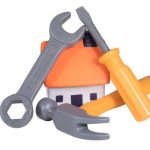Are you considering venturing into the home improvement industry? If so, you might be wondering, “Do you need a business license for home improvement?” The answer to this question depends on various factors such as the type of projects you plan to undertake and your local jurisdiction’s regulations.
Before diving into the world of home improvement, it’s crucial to understand the ins and outs of business licensing in this field. This article aims to provide a comprehensive guide to help you navigate through the complexities of obtaining and maintaining a business license for home improvement.
From legal requirements and different types of projects to the benefits of having a business license and consequences of operating without one, we will explore everything you need to know about home improvement business licensing. Whether you’re a seasoned contractor or just starting out in the industry, gaining clarity on these matters is essential for running a successful and compliant home improvement business. So, let’s delve into the intricacies of understanding home improvement business licensing.
Different Types of Home Improvement Projects
When it comes to home improvement projects, there are a wide variety of options for homeowners. Whether it’s a small renovation or a major remodeling job, understanding the different types of home improvement projects can help you determine if you need a business license for your specific project.
Interior Renovations
One common type of home improvement project is interior renovations. This could include updating kitchens, bathrooms, or other living spaces within the home. These types of projects often involve plumbing and electrical work, so it’s important to check with your local licensing authority to see if a business license is required.
Exterior Upgrades
Another popular category of home improvement projects is exterior upgrades. This may include landscaping, installing new siding, or adding a deck or patio. Depending on the scope of the project and local regulations, you may need a business license to legally perform this type of work.
Structural Changes
For more extensive home improvement projects that involve structural changes, such as adding an addition or removing walls, obtaining a business license is crucial. These types of projects often require permits and inspections to ensure compliance with building codes and safety standards.
Ultimately, the specific type and scope of your home improvement project will dictate whether you need a business license. It’s important to research and understand the legal requirements in your area before starting any work.
Legal Requirements for Home Improvement Business License
State and Local Regulations
When it comes to home improvement business licensing, the legal requirements can vary depending on your location. In the United States, state and local regulations play a significant role in determining whether or not you need a business license for home improvement. It is important to research the specific requirements in your area to ensure that you are in compliance with all applicable laws and regulations.
Trade-Specific Licenses
In addition to obtaining a general business license, certain home improvement projects may require trade-specific licenses. For example, contractors who work on plumbing, electrical, or HVAC systems may need to obtain additional licenses or certifications. It is crucial to understand the specific licensing requirements for the type of work you plan to do to avoid potential legal issues down the line.
Licensing Exemptions
While most home improvement businesses will require some form of licensing, there are certain exemptions that may apply in certain situations. For instance, some states may have exemptions for small-scale projects or DIY homeowners who are working on their own properties. However, these exemptions can vary widely by location and should be thoroughly researched before proceeding with any home improvement work.
Understanding the legal requirements for obtaining a business license for home improvement is essential for operating a legitimate and compliant business. Failure to comply with these requirements can result in severe consequences, including fines and legal action. By taking the time to research and adhere to these regulations, home improvement businesses can ensure they are meeting all necessary licensing obligations.
Benefits of Obtaining a Business License
Different Types of Home Improvement Projects
Legal Requirements for Home Improvement Business License
Consequences of Operating Without a Business License
How to Obtain a Business License for Home Improvement
Tips for Maintaining Compliance With Business License Regulations
Common Misconceptions and Myths About Home Improvement Business Licensing
Benefits of Obtaining a Business License
Obtaining a business license for home improvement projects can offer various benefits to the contractor or individual conducting the work. One significant benefit is the legitimacy it provides to your business.
Having a business license demonstrates to potential clients that you are a credible and professional service provider, which can enhance your reputation and ultimately attract more customers. Additionally, being properly licensed can also help instill trust and confidence in your existing clients, showing them that you are operating within legal parameters.
Another advantage of obtaining a business license is the access it provides to certain benefits and resources. For example, licensed contractors may have access to special industry-specific training, networking opportunities, and even financial assistance programs that are not available to unlicensed individuals. Moreover, some states or local governments require businesses to be licensed in order to bid on public or government-funded projects, therefore having a license can expand your opportunities for securing lucrative contracts.
Furthermore, holding a valid business license may protect you from legal repercussions and financial liabilities. In the event of disputes or complaints regarding your work, having a business license could provide you with legal protection and support if you need it. Additionally, being properly licensed can also make it easier for you to obtain insurance coverage for your home improvement business, ensuring that you are adequately protected against accidents or unforeseen incidents during project execution.
| Benefit | Description |
|---|---|
| Legitimacy | Demonstrates credibility and professionalism |
| Access to resources | Specialized training, networking opportunities, and financial assistance programs |
| Legal protection | Support in case of disputes or complaints; easier access to insurance coverage |
Consequences of Operating Without a Business License
Operating a home improvement business without the necessary business license can have serious consequences. In most areas, it is illegal to conduct any type of business without the appropriate licenses and permits. This means that if you are caught operating without a business license for your home improvement services, you could face fines, penalties, and even legal action.
Additionally, not having a business license can damage your reputation and credibility as a professional in the industry. Potential clients may be hesitant to hire someone who does not have their business affairs in order. This lack of trust can severely impact your ability to attract new customers and retain existing ones.
Moreover, operating without a business license puts you at risk of losing out on potential tax benefits and deductions that are available to licensed businesses. So even if you think you can save money by avoiding the process of obtaining a business license, in the long run, it could end up costing you more in fines, lost opportunities, and damage to your professional reputation.
| Consequences | Effects |
|---|---|
| Fines and penalties | Financial strain on the business |
| Legal action | Potential court proceedings |
| Damaged reputation | Losing potential clients and revenue |
| Tax disadvantages | Losing out on tax benefits and deductions |
How to Obtain a Business License for Home Improvement
Home improvement projects can range from simple repairs and renovations to more complex construction and remodeling work. No matter the scale of the project, it is important for home improvement professionals to understand the legal requirements for obtaining a business license. Failure to obtain the necessary business license could result in hefty fines and legal consequences. So, how can you obtain a business license for home improvement? Here are the basic steps to follow:
- Research Local Requirements: The first step in obtaining a business license for home improvement is to research the specific requirements in your local area. This may include city, county, or state regulations that need to be followed. Contact your local government offices or visit their websites to find out what is needed.
- Complete Necessary Paperwork: Once you have gathered all the information about the licensing requirements, it’s time to fill out the necessary paperwork. This may include an application form, proof of insurance, proof of bonding, and any other documentation required by your local government.
- Pay Any Required Fees: In many cases, there are fees associated with obtaining a business license for home improvement. Be sure to budget for these costs and submit payment along with your completed paperwork.
It’s also important to note that some areas may require home improvement professionals to pass a skills assessment or undergo background checks before being granted a business license. By following these steps and meeting all necessary requirements, you can ensure that you are operating legally and avoiding potential consequences.
By taking the time to obtain a proper business license for your home improvement business, you can not only avoid legal trouble but also gain credibility with customers and protect yourself financially in case of accidents or disputes. It’s an essential step in running a successful and compliant home improvement business.
Tips for Maintaining Compliance With Business License Regulations
Maintaining compliance with business license regulations is crucial for any home improvement business. Failing to do so can result in hefty fines, legal repercussions, and damage to your reputation. Here are some tips to help you stay on top of your business license requirements:
- Stay Informed: It’s important to regularly check for updates and changes to local, state, and federal business license regulations. Joining industry associations and attending workshops can also provide valuable information on compliance requirements.
- Keep Accurate Records: Document all of your business license applications, renewals, and any correspondence with licensing authorities. This will ensure that you have proof of compliance in case of an audit or inspection.
- Renew On Time: Missing a renewal deadline can result in penalties or even the suspension of your business operations. Set reminders well in advance of your license expiration dates to avoid any potential issues.
Additionally, it’s essential to understand the specific regulations that apply to your type of home improvement business. For example, if you are a general contractor handling large-scale projects, you may have different licensing requirements compared to a small-scale landscaping or interior design business.
Maintaining compliance with business license regulations ultimately protects your home improvement business and allows you to operate legally and ethically within your industry. By staying informed, keeping accurate records, and renewing licenses on time, you can avoid the negative consequences of non-compliance while demonstrating your commitment to professional standards.
Common Misconceptions and Myths About Home Improvement Business Licensing
In conclusion, it is essential for anyone involved in home improvement projects to understand the legal requirements and benefits of obtaining a business license. While there are different types of home improvement projects, all businesses in this industry must adhere to specific regulations and obtain the necessary licenses. Operating without a business license can have serious consequences, including fines, legal action, and damage to one’s reputation.
Obtaining a business license for home improvement can provide numerous benefits, such as increased credibility, access to certain resources and opportunities, and legal protection. It also demonstrates a commitment to operating ethically and within the law. Additionally, maintaining compliance with business license regulations not only helps avoid penalties but also fosters trust with clients and strengthens the overall reputation of the business.
Despite common misconceptions and myths about home improvement business licensing, it is crucial to educate oneself on the laws and regulations governing this industry. By seeking guidance from relevant authorities or legal professionals and staying informed about any updates or changes, individuals can ensure they are operating their home improvement businesses legally and responsibly. Ultimately, obtaining and maintaining a business license for home improvement is an important step in establishing a successful and reputable business within this field.
Frequently Asked Questions
Does Kansas Require a Contractors License?
Yes, Kansas does require contractors to be licensed. The state has specific requirements for different types of contractors, such as general contractors, electricians, plumbers, and HVAC technicians. Licensing ensures that contractors have the necessary skills and knowledge to perform their work safely and effectively.
What Is the Law for Home Improvement in NY?
In New York, the law for home improvement is covered by the Home Improvement Contractors Law. This law requires home improvement contractors to be registered with the state if they are performing work that costs more than $200. It also outlines certain consumer protections and contract requirements to ensure fair and transparent dealings between contractors and homeowners.
What Do You Need to Be a Handyman in Kansas?
To be a handyman in Kansas, you typically do not need a specific license or certification. However, if your work involves specialized trade skills such as electrical or plumbing work, you may need to obtain the appropriate licenses or certifications for those specific areas.
Additionally, it’s important to have liability insurance to protect yourself and your clients in case of accidents or damage while working as a handyman.

I’m thrilled to have you here as a part of the Remodeling Top community. This is where my journey as an architect and remodeling enthusiast intersects with your passion for transforming houses into dream homes.





